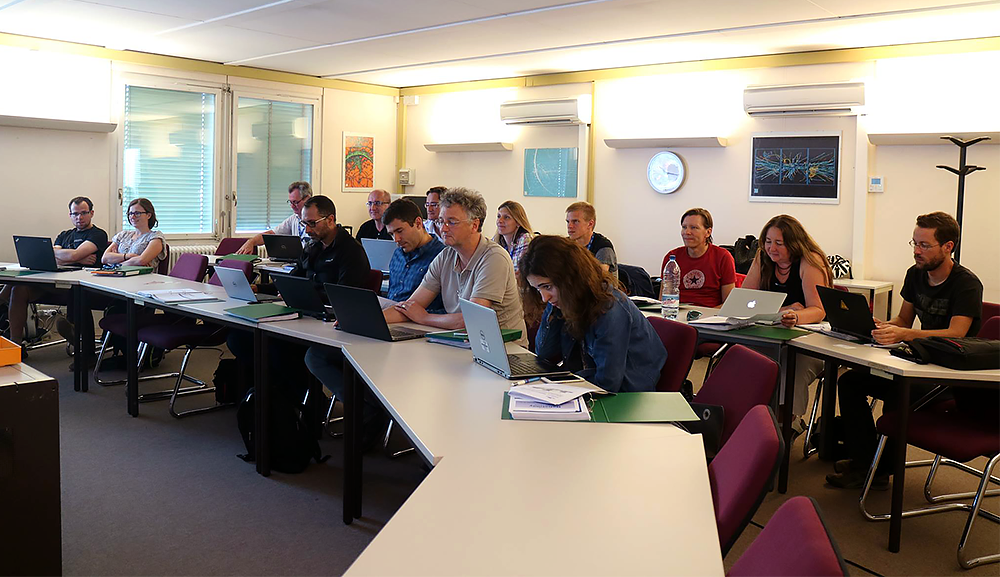![]() Accelerator reliability training help for experts
Accelerator reliability training help for experts
by Panos Charitos

Attendees of the previous ARA course (Image: Athina Papageorgiou-Koufidou)
The goal of the four-day ARA training is to give a common foundation and identify the best practices in reliability engineering for CERN system experts. The biannual course is organized in collaboration with University of Stuttgart, Tampere University of Technology and Ramentor Oy.
Organizer Jussi-Pekka Penttinen describes importance of this type of course: "We all have some idea about reliability from our everyday life. One dictionary definition is that: a reliable vehicle, piece of equipment, or system always works well. Such vague definitions are not suitable in engineering projects. No system is totally free of failure and people working in large organizations have different backgrounds, and therefore their expectations for reliability vary. The training builds a common foundation and understanding of reliability terms and methods which are required to avoid misunderstandings."
The course will consist of three days of theoretical training and one hands on day with ELMAS software that is used in Future Circular Collider study. The topics to be covered include the mathematical treatment of reliability and availability, along with common reliability engineering methods, such as Failure Mode and Effects Analysis, Fault Trees and Reliability Block Diagrams.
The course also demonstrates that theoretical training does not need to be boring. In previous sessions, the participants were asked to bend paper clips. After a while the clip breaks due to metal fatigue. But all clips don’t break at the same time. The exercise demonstrates probabilistic nature of reliability as the number of cycles clips survive form a distribution.
Industry uses this same principle for accelerated life testing and so the exercise gives CERN experts an insight on how CERN suppliers might test their product reliability.
Previous participants have responded positively feedback to the thoroughness of the theory presented on the course, including their understanding of the ELMAS tool. Combining theory and hands-on elements are useful for fostering a deeper understanding of topics presented.
The original motivation for the course was born from the Future Circular Collider study, where the increasing size and stored energy of the collider can be a challenge for system designers.
High system reliability is the key to availability. In colliders, availability directly influences the number of collisions, which can have further knock-on effects on researcher’s ability to find adequate evidence of new physics, as well as reach statistical significance to confirm findings.
The ARA course ultimately aims to increase the number and experience of experts so they are ready to design reliable systems for future colliders.
The Autumn 2017 session of the Reliability Engineering Training will take place at CERN from Tuesday, November 14th to Friday, November 17th. The course is open to all CERN personnel, as well as collaboration partners with discretion.
For more information contact: FCC-RAMS@cern.ch
The author would like to thank Arto Niemi for his invaluable comments and fruitful feedback in writing this article.
Related reading:
- Accelerator availability modeling / Integrated Luminosity: https://doi.org/10.1103/PhysRevAccelBeams.19.121003
- FCC Innovation Awards: https://fcc.web.cern.ch/Pages/news/FCC-Innovation-Awards.aspx
- A scalable and open platform for complex system behavior assessment: https://indico.cern.ch/event/556692/contributions/2592536/
